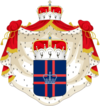Grand Duchy of Klitzibürg
This article is of poor quality and may require cleanup to meet MicroWiki's quality standards. Based on the last time it was edited, the future of this article is yet to be determined. Please improve this article if you can; the discussion page may contain suggestions. |
This article contains too many red links, and may be going through a major copy edit. You can help by clicking on red links and creating articles or by removing unnecessary red links. |
This article or section marked as work-in-progress has not been edited in over seven days, but further work is required. Please notify the user who first added this template. |
Grand Duchy of Klitzibürg Grosduxei Kletzibürk (Bohuyis) | |||||||
|---|---|---|---|---|---|---|---|
| Motto: Aer recens et mundus (Die Luft ist frisch und sauber/The air is fresh and clean) | |||||||
| Anthem: Heil dir, Klitzibürg (melody of Heil dir im Siegerkranz) | |||||||
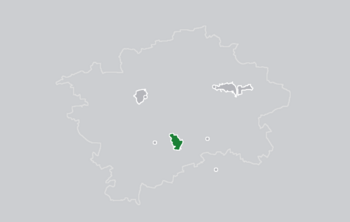 Position of Klitzibürg within the city of Prague, Czech Republic | |||||||
| Capital | Brüm/Breitzickburg | ||||||
| Largest city | Brüm | ||||||
| Official languages | Czech, English, French, Dutch, German, Bohuyis | ||||||
| Religion | Saint Atheism | ||||||
| Demonym(s) | Klitzibürgen | ||||||
| Government | Saint Atheistic Teocratic Absolutic Monarchy | ||||||
| Nicholas I. | |||||||
| János Szesekoven[cs] | |||||||
| Legislature | Imperial Chamber of Representatives | ||||||
| Establishment | 4 May 2019 | ||||||
| Population | |||||||
• 2021 census | 14 | ||||||
| Currency | Czech Crown, Klitzibürgen Schilling (KŠ) | ||||||
| Time zone | (UTC+1) | ||||||
| |||||||
full member of UMCE and MOF | |||||||
The Grand Duchy of Klitzibürg (Czech: Klitzibürgské velkovévodství, Bohuyis: Grosduxei Kletzibürk), also known as the Grand Duchy and Lands of the Klitzibürgian Crown (Czech: Velkovévodství a Země koruny Klitzibürgské, Bohuyis: Grosduxei at Landt kronesque Kletzibürke) is a small self-declared independent country, also known as a micronation, with territory (Bohuyis: Ërtliczkajt) claims in the Czech Republic. Klitzibürg declared its independence from the Czech Republic on 4 May 2019 and has been prospering ever since. Klitzibürg has two capital cities, Brüm, where the Grand Duke resides and Breitzickburg, where the government was located.
The Grand Duchy of Klitzibürg is an absolute saint atheistic federal hereditary monarchy on theocratic foundations governed by the Grand Duke, who temporarily holds absolute power over the people of Klitzibürg. As a federation, Klitzibürg is divided into two states, several colonies and two special territories and two special exceptions[a], which are governed by the Governing Aristocracy (Bohuyis: Schëndtearistokratzie). While Klitzibürg was still a moct monarchy, the legislative and executive power was exercised by the unicameral Imperial Chamber of Representatives (Bohuyis: Kaëzerische schampärchant van reprezentäten), with Imperial Chancellor (Bohuyis: Kaëzerischekanzler) as a leader.
The Grand Duchy of Klitzibürg is an landlocked country claiming territory mainly located in the Kunratický les in the capital city of Czech Republic, Prague. Other claims include territory near the north Bohemian towns of Teplice and Litoměřice and a small territory in the South Bohemian countryside. Klitzibürg borders only Czech Republic and no micronations, closest being the Free Kingdom of the Majer Dynasty, separated only by the Thomayer Hospital, which became a demilitarized zone on 5 March 2022, following a treaty signed between Klitzibürg and the Majer Dynasty.[1]
Klitzibürg is a member of the Union of Micronations of Central Europe and the MOF. In terms of individual relations between the micronations, Klitzibürg has mostly good relations with most of the Czech community and has cooperation agreements with some states.
History
This article or section marked as work-in-progress has not been edited in over seven days, but further work is required. Please notify the user who first added this template. |
Before establisment
The territory of modern-day Klitziburg (the majority of the Grand Duchy of Klitziburg) has always belonged to Czech lands. For several hundred years, there has been a forest also known as Kunratický or Krčský les. Probably the most significant involvement of this forest in the history of the Czech lands is the presence of the New Castle near Kunratice (Prague), which was built by King Wenceslaus IV of the Luxembourg dynasty, who eventually settled there and went hunting in the nearby forest. He died there and eventually the castle was destroyed by Hussites leaving only the foundations.

As for the forest itself, a large part of it was owned by Charles University, which was forced to hand over the forest to the state after the rise of the Communist Party. There are also a number of former hunting buildings or groves, and even a mill, where there used to be an inn, at which Prague residents used to take walks and have lunch in the local countryside during the First Republic, and which is believed to have been visited by Božena Němcová, who unfortunately was devalued by the construction of the Jižní město. Eventually the forest was completely surrounded by housing estates and the inhabitants of Prague now use it as a recreation area.
However, this changed when the independent state of Klitzibürg was established and began to claim nearby land. Eventually, expansion was carried out and the entire forest became part of Klitzibürg.
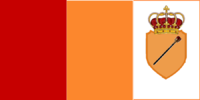
Origin
The idea for the creation of Klitzibürg itself came in April 2019, where the current Grand Duke discovered micronationalism. He had already had experience with the creation of geofictional states in the past, but Klitzibürg was something new to him. Just before the start of May 2019, background information and a flag were planned. The original date for the declaration of independence from the Czech Republic was supposed to be 2 May 2019, but due to lack of time, independence was not declared until 4 May.
For the first month of existence, no progress was made and the Grand Duke forgot about Klitzibürg. The rediscovery took place in June, when he created a page on the English MicroWiki. Here he was discovered by Tomáš Falešník and was introduced to the Czech MicroWiki, where his attention later moved. Cooperation was established with the newly formed Rednecks Republic[2] and also with the Gymnasium State, and besides that Klitzibürg also applied to join the UMCE, where he was eventually accepted as an observer. Klitzibürg gained a new citizen, new arrangements for the state were planned and Klitzibürg started to establish itself in the Czech sector.
The whole Czech MicroWiki woke up from inactivity and many long inactive micronationalists returned. Many community projects were planned at the time, among the most important being the realization of the Sušice summit, in which Klitzibürg participated thanks to Jan Šťastný, who served as a representative of the Crown. However, already at the end of the recess the first imperfections appeared. The Grand Duke united the previously established colonies to form the Colonial Empire[cs], Klitzibürg itself was transformed into the Archduchy of Klitzibürg for about three days, and the slightly controversial views of Nicholas I. were starting to show.
First decline
The first decline of Klitzibürg can be observed as early as September 2019. Activity was still ongoing and the Grand Duke was trying to recruit new citizens. The decline was mainly in international politics. Klitzibürg was transformed into the Empire and de facto fictional entities began to emerge. The Grand Duke became a very controversial figure. An example is the incident when he almost declared war on the micronation named Žižkov[cs]. Furthermore, his alleged "suppression of demonstrations by police force".
In addition, the first official discord server was opened, in English. He began recruiting dubious foreign micronationalists and forging collaborations with now-defunct micronations that were not destined for longevity. Surprisingly, activity did not initially decline and Klitzibürg saw its first democratically elected government. To the chagrin of some, it was not a Czech candidate, Jakub of Vitek[cs], who won, but a foreign candidate. But the activity quickly died down, as the government itself had ceased to be active perhaps even before it was formed, and ironically the election was another nail in the coffin of Klitzibürg activity. The citizens began to leave the state, the parties were inactive, the Chancellor was inactive.
This state of affairs continued for quite a long time and was finally ended by the resignation of the Chancellor. The first government collapsed and Klitzibürg fell into a deep state of inactivity. At the end of 2019, Klitzibürg was at the worst point in its short history. The Grand Duke didn't even care about Klitzibürg anymore at that time, he deleted the first discord server. The Grand Duke slowly started to get involved in out of state politics, which for example was Mendersia, where he became the new chairman of the MPM (2020). At the time, it looked like the then Greater Klitzibürg Empire had only a few months to live.

Pandemic
But despite the bleak future, one thing has come to kick-start Klitzibürg towards a better tomorrow. Pandemic. About two weeks before the start of the lockdown, Klitzibürg was converted back into a Grand Duchy, and Nicholas I. began to strongly consider reactivating it. The lockdown forced him to sit down and reactivate Klitzibürg. A new Czech discord server was launched, lots of new companies were created, the provinces were reformed, and a new government was also established, this time fully Czech. Foreign collaborations were established and it looked good. As far as the covid itself was concerned, only a few measures were taken, Klitzibürg was practically in the same situation as the Czech Republic. Although Klitzibürg's activity was slowly waning, there was something on the horizon that Klitzibürg certainly could not miss.
Micro-Mendersian War
Mendersia was a controversial micronation for many months. But that didn't stop the Grand Duke from participating in the local political life. He won the election and became Prime Minister. However, things have gone downhill since his inauguration, and the main reason has been the corruption and mendacity of Mendersian politicians. The Vice-President practically bought his post with a vote, the Prime Minister controlled half of the ministerial posts through his alter ego, Karl Hohuta, and the President added mandates for his party, lied, promised positions for votes and made controversial decisions. The final nail in the coffin of the then Mendersia was the departure of the Prime Minister and the Vice President. This was due to the aforementioned corruption, censorship and unnecessary decisions such as the elections to the parliaments of the republics. The Grand Duke had had enough of Mendersia and wanted to concentrate on Klitzibürg again. But the then President would not let it go and he started planing demonstrations, secret services and was generally angry with the Prime Minister and the Vice President because Mendersia had crumbled under his hands.
Just before the outbreak of the war, the then president attempted a coup in Klitzibürg, also known as the Klitzibürg Revolution[cs], but was discovered in time, and the coup was unsuccessful. One day, Klitzibürg and the Rednecks Republic had enough, and both nations declared war on Mendersia. Gradually, the micronations of the then Microentante[cs] joined in. The war lasted only a few days and was ended by the signing of an ultimatum. The president resigned and Jan Mírný[cs] was installed. Klitzibürg achieved his goal.
Entering Aenia
There was a lot going on in the early summer of 2020. The Lovosice Summit took place, which the Grand Duke also attended. In addition, however, tensions between many countries and Malček's Křivoklát and specifically Klitzibürg between Ludenberk[cs]. After some time, tensions within the previously formed Microentante began to peak and this led to the formation of two factions. Aenia and Concord. Aenia was formed overnight when five micronations decided to form a confederation to facilitate internecine politics and combat inactivity. Klitzibürg became a member state, and the Grand Duke successfully ran for viceschikovatel of the entire confederation. And the other half of the Microentante decided to create an organization to compete with the UMCE, the Concord. There was a bit of a feud between the two factions, but it gradually died down. The Concord fell into inactivity, and so did Aenia, of course. Klitzibürg was rapidly declining in activity, and it looked like the state of the micronation would return to early 2020, where Klitzibürg was completely inactive. Aenia was not helping, and the Grand Duke was currently more concerned with the upcoming Meknian Senate elections.
Firburg crisis
The Duchy of Firburg was created in the autumn of 2020, and as is the way with new micronations, not everyone liked it right away. The Duke of Firburg became a citizen of Klitzibürg and after the election became a member of parliament. However, after a coalition was formed, the Duke of Firburg decided to resign his position as MP, due to his disapproval of a possible coalition between the Royalists and the SSL. This angered Grand Duke Nicholas I and he decided to revoke the citizenship of Stefan Kutnix[cs]. War was not officially declared, but as of 13 November 2020, relations between Klitziburg and Firburg were very strained, and they did not officially begin to recognize each other again until January 2023.

Second decline
Summer revival
In the middle of the summer of 2022, the Grand Duke remembered his neglected and inactive micronation and decided to do something about it. The impetus for this was the resignation of Jakub of Vítek as Imperial Chancellor, and so the Grand Duke decided to install a new one. David, the current king of Reiland, was chosen, while the current regent of Vyrleia was also interested. The Administrator of the Eulenburg came back to the nation and decided to unofficially restore it, which was accepted by the Grand Duke. Nicholas I. immediately set about repairing some of the wiki pages after that, as they were somewhat neglected and outdated. In addition to the selection of a new Chancellor, the finalization of the constitution has begun for the third time, which will hopefully finally guarantee the basic freedoms of the Klitziburg people.
Majer-Klitzibürg crisis
Due to the domestic crisis in Mendersia, which eventually led to the impeachment of Nicholas I. and the resignation of David of Reiland as Imperial Chancellor, the Klitziburg state formation began to shake at its foundations. The Grand Duke first expelled most of the citizens, but this move was reconsidered and those who wanted to return were allowed to do so. However, this action did not please the King of Majerland, who, moreover, had long longed for the Schwëner, which he made clear several times over time. All these events eventually led to the crossing of the borders of Klitziburg by the Royal Army of Majerland, which began to occupy the northwestern part of Klitziburg lands, where the Schwëner Pond is located, which is considered by Majer as their culturally significant territory. At the same time, an ultimatum was issued dictating the handover of the Schwëner to the administration of Majerland, a process of democratization of Klitziburg, and the creation of an army to protect the Demilitarized Zone Thomayer Hospital. On 5 October, the Grand Duke issued a statement calling for a diplomatic solution. After further escalation of the conflict and the collapse of the peace talks, a general mobilization was declared in Klitziburg, to which the King of Majer responded by declaring the Free State of Novotroit, which was considered a terrorist organization.
Third decline and possible demise
After the end of the Majer crisis, Klitzibürg fell into the deepest inactivity it had ever been in. By 2023, virtually nothing had happened, and the Grand Duke had stopped attending to the state altogether and began to contemplate its demise. Eventually the demise of the state was indeed announced, and it was on May 4, 2023, which would have been based on four years of existence. He was convinced of his decision, but his plans were thwarted by the imperialistic tendencies of the other micronations, who showed interest in biting off a piece of the Klitziburg states, especially Reiland, who wanted to become the owner of Haakonn, despite not sharing a shred of history with it. The Archduchy of Schwarzwald[cs] offered Klitzibürg an existence within the Protectorate, but the Grand Duke eventually refused this as well. In the end, he decided to keep Klitzibürg and let it exist for a few more years and at the beggining of 2024, Klitzibürg became active again, with Grand Duke hugely improving its wiki sites and choosing a new Imperial Chancellor, János Szesekoven.
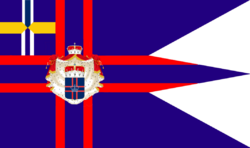
Etymology
The word Klitzibürg comes from an old expression from the language known as Noble Bohuyis, Klitsibür, which loosely translates to "forester", but experts argue whether the name of the state comes more from the word Kletzebe, which means "noble". Neither theory has been officially confirmed, so everyone is free to interpret it as they wish.
The Grand Duke also pointed to a possible connection with nearby district of Kunratice. Kunratice is translated to Kinratenz in Bohuyis, which is strikingly close to the word Klitzi. The word bürg probably comes from the German word Burg, meaning castle. And there is indeed a castle on the territory of Klitzibürg, more precisely the New Castle on the Dultragan.
There is also a noticeable similarity with the German name of Erdély, or Transylvania, namely Siebenbürgen, where the burg with the Umlaut is also located, but it should be noted that when Klitzibürg was founded, the Grand Duke had no idea what the German version of the name Transylvania was.
Pronunciation
The pronunciation of the name of the state is rather difficult and is therefore often comolated. In fact, transliterated into Czech, Klitzibürg would be pronounced "/klɪtsɪbʏrg/, with the noticable emphasis on the last letter[b], but due to the transliteration and their incomplete familiarity among people who are not proficient in German it is often confused with "/klɪtsɪbʊʁk/"
Culture
The culture in Klitzibürg is a mix of existing cultures and developed by the Grand Duke, with religion and traditions being a major focus of development. The population finds a liking for western films, fantasy, books or anime/manga. The Grand Duke is known for his fondness for Lego, which is the reason why Lego is seen as a little national treasure for the Klitzibürgians. The culture itself is very much based on Slavic and Germanic cultural ideals and traditions. In addition to Slavic and Germanic cultures, Klitzibürg is very much based on Saint Atheistic mythology, and at least one citizen follows the 10 Saint Atheistic Commandments.
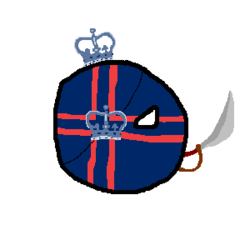
Sights
The National Monuments Act was passed on the 2020 reform, which designated several monuments to become symbols of Klitzibürg statehood.
- New Castle near Kunratice
- Old railway viaduct
- Lower Kunratice Mill
- Old Stairs
- Kunratice Chateau
- Church of St. James the Greater in Kunratice.
- Dultragen Mountain[cs]
- Brothenx River
- Indürd Highlands
- Imperial Forest area
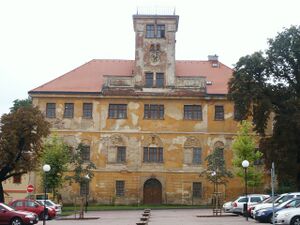
Name
Klitzibürg has two official names in English, these are the Grand Duchy and Lands of the Crown of Klitzibürg and the Grand Duchy of Klitzibürg. Among the names in use is the shortened version 'Klitzibürg', which is, however, not recognised as the official name of the state. The historical names of the state include names such as the First Sovereign Free Archmoct of Klitziburg, the Archduchy of Klitzibürg or the Federative Grand Duchy of Klitzibürg. In August 2019, a name that is totally political and the exact Klitzibürg regime was coined out of fun, but beware this name was not official and was more of a joke. The First Sovereign Free Diarchy Archmokst Monarchist State Unit under the protection of the Grand Duke and Archmokst Adviser in the Saint Atheistic Semi-Autocracy. This name would be used very uncommonly. Klitzibürg was also known as Göth Dynasty, Saint Atheistic Monarchy.
Klitzibürg is often abbreviated as KLAR, which serves as an official abbreviation. But technically it should be VEKl, which stands for Velkovévodství Klitzibürg. But KLAR dates back to the days of the very short-lived Archduchy of Klitzibürg , but it caught on very well and has been used ever since.
State names in official languages
- English - Grand Duchy of Klitzibürg
- Bohuyis- Grosduxei Kletzibürg
- Noble Bohuyis - Corwennedd Cylletynbur
- Czech - Klitzibürgské velkovévodství
- German - Großherzogtum Klitzibürg
- Dutch - Groothertogdom Klitzibürg
- French - Grand-Duché de Klitzibürg
Cuisine
Traditional and popular Klitzibürg dishes include: beef goulash with dumplings, beef tenderloin in cream and roasted duck with sauerkraut and bread dumplings. Fast-food joints are also common, with Kentucky Fried Chicken and Bageterie Boulevard among the most popular. In addition to fast food, street food is also popular, especially Poutine, which has quickly become such a national dish, one of the few surviving French or French-Canadian influences on Klitzibürg culture.

Languages
Klitzibürg has six official languages and three recognized ones. These include Czech, English, Bohuyis, Dutch, French and German. The national language and state symbol is Bohuyis and its offshoot, the Noble Bohuyis. Czech is used on a daily basis, as is English. German is the historical language of the nation and has a strong presence in Klitzibürg. French lost its importance long ago and remains the official language by tradition alone. Dutch and its offshoot Bohuyis Dutch are official languages more for fun.
Bohuyis is not taught in any way and is very slowly developed. Future uses include the government sector or an optional course at University, but both of these options are a long way off in time. Recognised languages include Mendersian, Nissian and Vyrlean[cs]. Mendersian stands out among these languages as it is part of the same language family along with Bohuyis. Example of languages:
| Czech | English | German | French | Dutch | Bohuyis | Noble Bohuyis | Bohuyis Dutch |
|---|---|---|---|---|---|---|---|
| jedna | one | eins | un | een | onu | uen | enae |
| dva | two | zwei | deux | twee | diks | daeea | towe |
| tři | three | drei | trois | drie | dchrei | kroaet | droi |
| čtyři | four | vier | quatre | vier | truach | vorpedd | viart |
| pět | five | fünf | cinq | vijf | kazü | peczijf | vaojf |
Bohuyis has its own dictionary, which is currently not being added to, but contains over three hundred words. Bohuyis itself has links to Germanic and Slavic languages, but despite this, Bohuiys is member of the Boyoheum language group with Mendersian. Originally, Bohuyis was much closer to the other Boyoheum languages, but over time it has taken on a path of its own, focusing more on the Germanic influence.
Education
Klitzibürg has no functioning schools, so all citizens must study in the Czech Republic. There was a plan for a university, the Imperial University of St. Dehil. Five faculties were planned : the Faculty of World History, the Faculty of Klitzibürg History, the Faculty of Boyoheum Languages, the Faculty of World Geography and the Faculty of Micronational Geography. This plan has been abandoned and the project suspended indefinitely.
Dances
The national dance is the so-called Bird Dance, or Folkke Danziec in Bohuyis, less commonly known as Bchirdy Danziec. It is performed by the fire and has no precise choreography. It consists only of random jumping and twirling around the fire. It was invented by the Grand Duke a few years back while he was at a scouting camp and has been performed ever since, while the Grand Duke was still a scout. Instead of a sophisticated dance such as a waltz, polka or mazurka, the Bird Dance is sheer chaos.
Theatre
The Imperial Theatre of Klitzibürg and amateur Johaniosius Theatre are currently under planning process.
Videogames
In Klitzibürg are videogames very popular form of entertainment and relaxation. Most popular are Minecraft, Cities: Skylines, The Elder Scrolls IV: Oblivion, The Elder Scrolls V: Skyrim, Witcher 3: Wild Hunt, Kingdom Come: Deliverance, Celeste or Team Fortress II.
Demographics
Klitzibürg is one of the larger micronations in the Czech sector. The majority of the inhabitants are Czech and speak common Czech. There are 15 citizens, making Klitzibürg rather one of the smaller states in terms of population.
Religion
Approximately 20% of the citizens adhere to a church, the rest are atheists. Apart from classical churches such as Roman Catholic or Protestant, there is a completely different religion practiced here, and that is Saint Atheism. The Saint Atheist religion is officially supported by the state, the Saint Atheistic Church has influence on politics and the Grand Duke himself is also the head of this church. But even though it is state-supported religion, only 7% of the people practise it. Saint Atheism is also the only religion to have a direct representation in politics, thanks to the People's Party of Saint Atheists.

Ethnic composition
Nearly one hundred percent of the population is of Czech origin, with their ancestors having come from other Slavic or Germanic countries.
Economy
Klitziburg is economically underdeveloped. It is dependent on the Czech Republic for its existence and would soon disappear without its imports. There are several companies, such as Nitroel, Breitzickburg Industries or CANDHELM-DOKRE, but all these companies are dead and inactive. As far as the state budget is concerned, Klitzibürg has exactly zero Czech crowns. The Grand Duke pays all important expenses from his own coffers. Klitzibürg's companies and institues include or has included: Nitroel s.r.o (IT and Transport), Imperial Academy of Sciences (Science and Technology), Klitzibürg Space Agency (space observation, meteorology), Klitzibürg Medical Institut
Currency
Klitziburg currently uses only the Czech crowns, but since 2020 there have been proposals to create a Klitziburg schilling. Originally it was to be backed by stones. However, plans for its introduction were postponed and completely suspended in 2022, the reason being the difficulty and futility of creating a micronational currency and economy.
Imports
Klitzibürg is dependent on imports from the Czech Republic, without which it could not exist. Everything is imported, from food, furniture, school supplies, to small things like crayons and manga.
Exports
Klitzibürg does not export anything, but there are plans to change this situation. However, the Grand Duke realizes how difficult it is to export material things, so he has decided that the first commodity to be exported to the Czech Republic is pain.
Diplomacy and foreign relations
Klitzibürg tries to be a neutral state in the field of intermicronational conflicts, which is not very successful, for example due to Klitzibürg's involvement in the Micro-Mendersia War, the Kybistani-Firburg Crisis, or the overthrow of the Mendersian government and the establishment of the Leitmeritz Monarchy, among many other conflicts. Klitzibürg had also signed Wrythe Convention.
But despite all of this, Klitzibürg tries to maintain good diplomatic relations with most of the Micronations in the Czech Sector, and has signed a diplomatic treaty with most of them. He used to be present in the foreign community, where he also established cooperation with few micronations and joined GUM. When KLAR was expelled from GUM for inactivity, Klitzibürg decided to leave the foreign community and focus more on Czech micronations and UMSE.
As far as specific micronations are concerned, arguably, he has long had the best relations with Krlesia, more specifically Vidlákov, which is very close to Klitzibürg. Both of these states were founded in the same period and grew together and asserted their place in the community.
Politics
This article or section marked as work-in-progress has not been edited in over seven days, but further work is required. Please notify the user who first added this template. |
The Grand Duchy of Klitzibürg is a Saint Atheistic absolutist hereditary monarchy with theocratic elements, and its state system is a grand duchy. It used to be a unicameral state with a Imperial Chamber of Representatives, which is currently unfortunately suspended. The last active government had plans to create a Constitution[3], but this plan never came into fruition. It can still be found on the Klitziburg discord server, and the Grand Duke will probably use it and finish it, but this plan is still far from being completed. The Grand Duke is the representative of the state, representing Klitzibürg in international affairs. He has the power to dissolve parliament, change state symbols, issue Imperial Decrees, veto power (in times of parliament), declare a state of emergency or even declare war. The current Grand Duke is Nicholas I.
Monarchy
Klitzibürg has been a monarchy since its founding. It is very important to Klitzibürg and also very popular. Rulers here have the title of Grand Duke and traditionally the title of Regent of Haakonn and the Duke of Teplice. The ruling family is the Göths. The counselor has the title of prince and usually this post belongs to the Erganburgins. The Göth dynasty was probably founded in the 17th century and is one of the most powerful micronational noble families in the Czech sector. Due to the existence of the monarchy, there are titles of nobility and traditionally the heads of the provinces are viscounts.

Grand Duke
The Grand Duke has been the supreme representative of the state and its chief representative since its creation. This position is not elected, but hereditary, and the succession of the firstborn is exercised. During the history of the independent state of Klitzibürg, for a few months the title of Grand Duke became only a secondary title of nobility and the current ruler could boast the title of Emperor, but the Empire was short-lived and Klitzibürg quickly returned back to the Grand Duchy. Unlike the other leaders inthe Klitzibürg State, he does not and cannot gain access to the Treasury, and it is all the more interesting that at one time the Treasury numbered around 350 Czech crowns and now there are exactly zero crowns in the Treasury.
Address: Your Imperial Highness:
Imperial Chancellor
The Imperial Chancellor is the second highest ranking official of the state and also serves as the leader of the Parliament. The only problem is that the parliament is currently under shutdown, so most of the Imperial Chancellor's powers have temporarily passed to the Grand Duke. Unlike the Grand Duke, the Reich Chancellor is an elected position and is usually the leader of the winning party.
Address: Honorable Chancellor:
Advisor
The now not-used title formerly belonged to the second most powerful man in the state. The Advisor used to be a sort of equivalent of the Imperial Chancellor, but he did not operate with Parliament and also had direct access to the Grand Duke. Historically, the title belonged to the Princes of Erganburg, and technically the current heir of Erganburg, Jan Šťastný, is still an advisor, but in practice the title is completely irrelevant and holds no power today.
Address: Distinguished Adviser:
Nobility
There are currently only three noble houses: the Göths, the Erganburgines and the Wenceslauses. Several non-dynastic titles have been given out during their existence, however when the person left Klitzibürg, their noble title ceased to be valid. All citizens who have been part of Klitzibürg for more than two months are entitled to be awarded a noble title and the rights associated with it. As far as non-citizens are concerned, the only title they can receive is that of Baron, but without the right to a hereditary dynasty. For merit, an individual can be elevated to the nobility, which automatically gives him rights:
- has the right to use the coat of arms
- has the right to use the surname of z or von (von is only available for viscount and above)
- if elected Viscount, he has the right to administer the province
- if the noble title is granted permanently, he has the right to establish a hereditary dynasty
An interesting exception is Moct, the lowest possible title. It gives all the rights as the titles below, only the holder becomes a Knight in the Army, which means he must serve in the Army. So must every firstborn son do. If he fails to do so, his title will be taken away. The titles of nobility in Klitziburg are:
- Duke
- Counts and Landgraves
- Viscount
- Baron
- Máérqués (only in Brüm)
- Rytter
- Moct, or in practice Sir Marius, by the grace of the Crown, Knight in the Army[cs]
Political parties
Most political parties are inactive due to the suspended parliament. The only party with any activity is the Royalists, who have recently gained a new leader. According to the constitution, every citizen should have the right to form a political party and engage in politics, but this right is currently very limited. According to the non-existent constitution, even regional political parties can be formed and compete only within the state. The only states that have this privilege are the original Klitzibürg and Erganburg-Haakonn.
| Strana | Logo | Leader | Political position | Ideology | Imperial Chamber status | Seats in the Imperial Chamber of Representatives | ||
|---|---|---|---|---|---|---|---|---|
| R Royalists |
100px | János Peter Szesekoven[cs] | Right | monarchism, national conservatism, liberal conservatism | Government | 0 / 4
| ||
| SSL Party of United Left |
není | Jan Šťastný | Left | social democracy etc. | Opposition | 0 / 4
| ||
| LSS People's Party of Saint Atheists |
File:Pöp.png | Nicholas I. | Centre-right | Saint Atheistic democracy, monarchism, social conservatism, liberal conservatism | Opposition | 0 / 4
| ||
Law and the judiciary
Currently, all judicial power is vested in the Grand Duke, but the status of the courts will be defined in the constitution. Officially, there is one court, the Grand Ducal Court in Breitzickburg, where the trial between the Grand Duke and Stefan Kutnix I. also took place. Every citizen has the right to a fair trial, and if he requests it, he can take a lawyer to defend himself. The role of judge is currently held by the Grand Duke, who promises to be impartial.
Index of Democracy
Klitzibürg came last in the Democracy Index, created by Tomáš Falešník. This position shows the current Klitzibürg and its shortcomings. The Grand Duke hopes that the new government, headed by the newly selected Chancellor, will help Klitzibürg get at least into the hybrid regime category.
The first step towards improving the human rights situation was to allow same-sex marriage in 2022 and to start writing the constitution.
Army
The Klitzibürg army is very small, and the only forms of weaponry it possesses are wooden swords, Swiss Army knive, and the Grand Ducal sword, though the Grand Ducal sword is used in the knighting of new knights and not in battle. However, aside from physical conflict, the Klitzibürg army could theoretically be active in a virtual battlefield in the future if the plan to create a hacker team comes to fruition. The Imperial Army has one regiment and the Imperial Headquarters of the Army. Training is optional. Official Posts:
- Officer
- Rytter
- Schikovatel (Klitzibürg version)
- The Hon. Army General
- Shogun (representative title, belongs only to Grand Duke)
In the case of mobilization, the Klitzibürg army is able to mobilize around 0-5 people, but this number varies depending on weather and mood.
Transport

In Klitzibürg there is a system of "motorways", paved roads, and additional automobile roads. The Imperial Forest is criss-crossed with roads, but not all are created equal, in fact it is divided into four categories. Unofficially there are five, there are also desire paths, but these are not included in the maps and so are not included in this table. In addition to the roads within Klitzibürg, one can also use the nearby bus stations, which are located practically along the entire length of the border, and there are train stations near the northern and northwestern borders: Praha-Krč and Praha-Kačerov, which offer connections to the city centre, alternatively to Braník, Modřany, Vrané nad Vltavou, Mníšek pod Brdy, Dobříš, Jílové u Prahy, Týnec nad Sázavou and Čerčany, where the line winds along a romantic track, also called Posázavský pacifik. Apart from these two modes, the metro C lines can also be used, with Roztyly adjacent to Klitzibürg directly, and Chodov just a short distance from the eastern border.
| type | Division | Operation | Maximum speed |
|---|---|---|---|
| Highway | Colours and numerical indices, each motorway is clearly separated | Biking, walking, levitation (car traffic is not allowed, exceptions are IZS ČR and Forests ČR) | Not intended |
| Paved road | Orange colour, on maps they are all just outlined | Walking, levitation, cycling (allowed, but government warns of uneven surface; car traffic not allowed, exceptions are IZS ČR and Lesy ČR) | Not intended |
| Dirt path | - | Walking, levitation, cycling (at own risk) | Not intended |
| Car traffic | Black colour and name | Car, walking, levitation, cycling (the last three on this one have recommendations to be alert) | 30 km/h |

Sports
The national sports are walking, e-sports and chess. It used to be orienteering, but quickly fell into oblivion when the Grand Duke stopped practicing it.
National holidays
Public holidays have been proclaimed over the years. During a public holiday, every citizen has the right to a day off and to shave their legs.
| Date | Holiday | Description |
|---|---|---|
| January 1st | New Year | The beginning of a new year. |
| movable | Great Friday | Christian holiday. This day commemorates the death of Jesus Christ on the cross. |
| movable | Easter Monday | Christian holiday, tradition of welcoming spring. It follows Resurrection Sunday. |
| May 1st | Labour Day - part of the week-long national celebrations | A commemoration of the 1886 Chicago labor strike, promoted by the Social Democratic International. |
| May 4th | Independence Day - part of the weekly national celebration | The establishment of the Grand Duchy of Klitzibürg |
| 8th May | Victory Day - part of the weekly national celebrations | The end of the Second World War in Europe. |
| July 9th | National Day | Classic celebrations. |
| July 10th | Moct Monarchy Day | The anniversary of the founding of the Moct Monarchy. |
| September 28th | March to the Czech Republic | The assassination of St. Wenceslaus in 935 (929) in Stará Boleslav. |
| November 4 | Anniversary of the first coronation and first election | Nicholas I. was crowned ruler of the lands of Klitziburg and called the first elections |
| December 6th | Name Day of Nicholas I/Religious Day | A movable holiday, depending on the ruler. |
| 7 - December 30 | Autumn State Festival | Celebrating the end of autumn and the beginning of winter. Important Saint Atheistic holidays, where Saint Atheists gives thanks for a blessed year, honours the dead, and traditionally celebrate. Christmas is included. |
| December 24th | Christmas Eve | The evening celebration of Christmas. |
| December 25th | 1st Christmas Day | In Catholic and Protestant liturgy, the celebration of the birth of Jesus Christ. |
| December 26th | 2nd Christmas Day | In the Catholic and Protestant liturgy the commemoration of the first Christian martyr Stephen. |
Settlements
There are several cities in Klitzibürg, but few of them are permanently inhabited. There are no villages, with one exception, which is the Grand Ducal Winter Palace, located in a village that is not part of Klitzibürg.
List of all cities:
- Brüm - the capital
- Breitzickburg - capital
- Indürd upon Brothenx
- Cattenh Rouge
- Nordstand
- Velviare
- Kassleneth
Colonial settlements
- New Dunkerque - the capital of the Western Company
- Kalkahre
- Carmierne/Ciudad de Carmierné
Geography
Geography is quite variyng in Klitzibürg. For example, the Teplice area is on an island and the main Klitzibürg area is typical Central European forest.

Surface
Most of the Klitzibürg area is quite hilly. The highest point is probably the peak of Dultragen, which forms the natural boundary of the main Klitzibürg territory and overlooks the Brothenx River. Most of the territory is nature, only in the main part of Klitzibürg are buildings. Most of the territory is therefore forest or fields. As far as the watercourses are concerned, in Klitzibürg this post is represented by the Brothenx river, which rises near Hrnčíře, which is an village part of Prague, and then flows into the Vltava near the Barrandov Bridge. There are also many ponds in the south and west of Klitzibürg, such as the Lower Mill Pond or the Schwëner Pond, which add to the unique atmosphere of Klitzibürg.
Climate
The climate in all parts of Klitziburg (except the colonies) is very mild and relatively warm. Located in the temperate zone and mostly in the Czech Republic, the climate is typically Czech. The Prague area, unlike the colonies or crown territories, has a slightly warmer climate due to its location and the increased temperature due to the densely built-up area. The average temperature here is about 13 degrees and the average rainfall about 430 mm. But it can vary, because Klitzibürg is largely located on hills and it lies in a very special position that it sometimes snow stays a bit longer than in other parts of Prague and it rains more often.
Fauna and flora
Again, this depends on the position. As the area is originally Czech, most of the animals and plants found here will be found elsewhere. The fauna and flora of Klitziburg is nothing special. There are typical forest animals such as squirrels, jays, dendrocoposes or nuthaches. But there are also badgers and, thanks to the zoo's enclosures, mouflons and deers. As far as the flora is concerned, spruce and pine dominate. Around the river we can find European alder and Stepple ash. The original areas of beech and oak are now very rare, due to spruce monoculture.
Administrative division
The Grand Duchy and the Lands of the Klitzibürgian Crown together consist of two states, an autonomous territory, several colonies, and three special territories. As of 2022, Klitzibürg has begun to divest itself of its claim to the territory inhabited by citizens of the Czech Republic; so far, only the location of the Territory of Teplice has been changed, but the Grand Duke has let it be known that there are plans to adjust the territory of Klitzibürg as well.

States
The territory of the Grand Duchy and the Lands of the Klitzibürgian Crown is divided into many regions, but the States are the highest administrative unit. The method of dividing the Crown of Klitziburg and de facto federalizing Klitzibürg into smaller administrative units such as states dates back to the early months of 2020, when the then state of Haakonn was annexed by the Crown of Klitzibürg, and the Kingdom of Haakonn was formed within the Crown at that time. This kingdom later united with the Principality of Erganburg to form the Holiest Union of Erganburg and Haakonn, the only other state besides the original Klitzibürg territory.
Provinces
As the largest and most important administrative units, states have the right to form their own provinces and provincial cities. So far only Klitzibürg has used this right, but it is possible that Erganburg and Haakonn will use it in the future.
The function of the provinces themselves is mainly to bring the population together for easier functioning in elections, referendums or censuses. Each province has its own provincial town and is also entitled to a motto, flag and, exceptionally, an emblem. Provinces tend to change frequently, and some are dissolved and created, with the last such provincial reform taking place in the autumn of 2021, when long-standing issues regarding provincial names were finally resolved. At the same time, in 2022, maps of the provinces within Klitzibürg are finally beginning to emerge, and the Grand Duke estimates that he will have them ready by the end of the 2022 holiday season. This prediction turned out to be wrong and the maps were not completed until 14 May 2023.
Territories
The Crown is further subdivided into territories, which are often smaller units in both area and population. They have far fewer rights than states. But territories can be a pretty vague concept. For example, the Autonomous Territory of Eulenburg could be compared to a state in rights, but it does not have the right to make its own specialized laws, form state political parties, or expand its territory. Whereas the Supreme territory of Teplice is really just a ceremonial and decorative territory. No one can become a citizen, there is no territorial parliament.
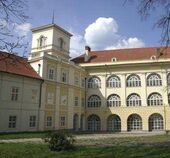
Cities
Cities are the smallest administrative unit in the Crown. Absolutely every administrative unit higher up the ladder (except Supreme Territory of Teplice) is entitled to at least one city (note that this rule only applies to the main Klitzibürg, not the Territories, other State and the Special Exceptions). Cities have virtually no significance, except that they bring the population together for easier manipulation, and they make companies seem more credible when they have a headquarters. Cities have few rights, apart from a right to have a motto, logo, there is not much else. They do not have flag rights, the exception being a pair of capital cities, Brüm and Breitzickburg.
Colonies
The colonies in Klitzibürg are a remnant of a colonial history of Klitzibürg. They don't serve any purpose.
They are the closest comparison to the Supreme Territory of Teplice, because again, their purpose is merely ceremonial and decorative. In the past, a governor was supposed to be chosen for each colony as well, but that idea has been abandoned for a long. Most of them were combined into the Klitziburg Western Society, a parody of the East India Company that existed in the Netherlands. There are currently no plans for further development of the colonies, and the only reason Klitzibürg still owns them is rather nostalgia for the olden days. All the colonies are administered by the Imperial Court and are thus the only administrative units that are officially administered by a private person (except for the Supreme Territory of Teplice).
Special exceptions

Special exception (Bohuyis: Haltewar Gelimgacht), also known as Acht, is an administrative division that is drasticly different from the established Ërtliczkajt division system. Exceptions can be issued only by Imperial Decrees or by Grand Duke's Ordnung Acht. Right now there are three special territorial exceptions differing from the Ërtliczkajt division system.
The Grand Ducal Winter Palace
The first is the Grand Ducal Winter Palace. This building is located in an unspecified location where the Grand Duke spends his leisure time away from the hustle and bustle of the big city. The interesting thing about this building is that it belongs to the Imperial Court, but is not part of the Klitzibürgian Crown, it is merely the property of the Court.
Autonomous Landgraviate of Schwëner
The second territorial exception is the Autonomous Landgraviate of Schwëner. This autonomous territory is officially part of the main Klitzibürg, but instead of the viscount it is administered by a landgrave, who has many more powers and reports directly to the Grand Duke. Schwëner was created as part of a peace treaty between Klitzibürg and Free Kingdom of Majer Dynasty, which had already laid claim to the lake Schwëner on several occasions. The autonomous territory administered by the King of Majer Dynasty, within the Klitziburg Crown was a compromise agreed by both monarchs. [4]
Paarschaft City of Erganburg
The Paarschaft City of Erganburg, also known as Distinguished City of Erganburg is an special territorial exception. Cities in Klitzibürg are typically present only in main Klitzibürg and in teoretical sense in the Colonies, but Erganburg is in the Union of Erganburg and Haakonn. The reason for this is simple, Erganburg and Haakonn needed some seat of power and center of culture, but they couldn't have the capital city in a traditional sense, so Grand Duke has created an exception to the Ërtliczkajt division system.
The Paarschaft City of Erganburg was created not just as a city, but also as the only administrative division in the Union of Erganburg and Haakonn, so Grand Duke has decided that all the territory of Erganburg should be part of the Paarschaft City.
List of provinces, colonies, cities
Current list of all provinces and colonies belonging to the Crown of Klitzibürg.
| Name | Flag | Land | City | Date of | Viscount/Governer | Population |
|---|---|---|---|---|---|---|
| Provinces | ||||||
| Metropolitan district of the Capital City of Brüm and the City of Breitzickburg[cs] | 
|
550 m² | Brüm Breitzickburg |
2019 | Nicholas I. | 4 |
| Nordethasen and Brotheasen[cs] | 
|
450 m² | Nordstand | 2019 | Nicholas I. | 2 |
| Province of the Indürd[cs] | 
|
130 m² | Indürd upon Brothenx | 2019 | Nicholas I. | 3 |
| Imperial Province Ludoch-Dörner[cs] | 
|
2 m² | - | 2020 | not required | 2 |
| Great Körpenque[cs] | 
|
10 m² | Körpenque | 2019 | Nicholas I. | 0 |
| Suthende/Southeén[cs] | 
|
10 m² | Cattenh Rouge (Catroughe) | 2021 | Nicholas I. | 0 |
| Colonies | ||||||
| Colony of Burhou | 
|
1,5km | New Dunkerque | 2019 | Nicholas I. | 0 |
| Personal Imperial Property of the Court Islés Saint-Marcouf | 350 m | 2019 | Nicholas I. | 0 | ||
| Crown Dependant Territory of Bureau-Saint Michael | 6 km | Ciudad de Carmierné | 2019 | Nicholas I. | 0 | |
| Colony of Isla Conejo | 0,8 km | 2019 | Nicholas I. | 0 | ||
| Colony of Los Testigos | 6 km | Kalkahre | 2019 | Nicholas I. | 0 | |
| Territories | ||||||
| Autonomous Territory of Eulenburg | 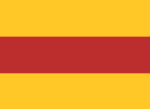
|
Eulenburg | 2020 | vacant | 0 | |
| Supreme Territory of Teplice | 
|
350 m | 2020 | Nicholas I. | 0 | |
Related Articles
External links
Notes
- ↑ There are technically three special exceptions, but the third, Grand Ducal Winter Palace, is not part of this list, because the territory is owned by the Imperial Court, but is not part of the Klitzibürgian Crown.
- ↑ Note that in Standard German, pronounciation should technically be /klɪtsɪbʏʁg/, which means that Voiced uvular fricative is used here, instead of the Voiced alveolar trill, also known as a rolled R, but due to Klitzibürg having a huge Czech influence, where the rolled R is dominant, Grand Duke decided to adopt it, because of an easier pronounciaton for Klitzibürgians, which are dominantly of Czech backround.
References
- ↑ Treaty of cooperation between Klitzibürg and Majer Dynasty, with Thomayer Hospital Zone being a part of it
- ↑ Cooperation Treaty in Czech between Klitzibürg and Rednecks Republic
- ↑ Not finished Klitzibürgian constitution
- ↑ Peace treaty between Klitzibürg and Majer Dynasty, which lead to the establishment of the Autonomous Landgraviate of Schwëner

